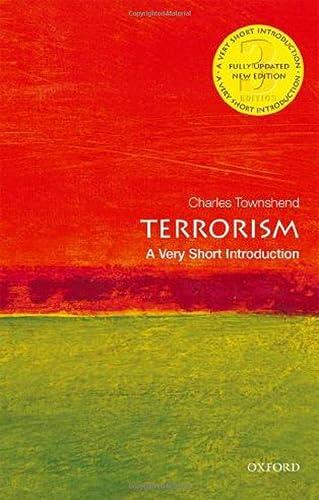
Terrorism: A Very Short Introduction
Aún sin calificaciones
Action & Adventure
History
Formato
Tapa blanda
Páginas
184
Idioma
Inglés
Publicado
Jul 24, 2018
Editorial
Oxford University Press
Edición
3
ISBN-10
0198809093
ISBN-13
9780198809098
Descripción
Charles Townshend's exploration of terrorism delves into the complexities of one of the most pressing issues of our time. This updated edition presents a thought-provoking examination of whether terrorism should be categorized as a crime or a form of warfare, challenging readers to reconsider their preconceived notions. Through insightful analysis, Townshend navigates the tangled web of motivations behind terrorist acts, illuminating the social, political, and ideological factors that drive individuals to violence.
He engages with the controversial debate surrounding the “war against terrorism,” prompting readers to reflect on the implications of such a declaration. Townshend's accessible writing style invites a broad audience to engage with difficult questions about peace, security, and the efficacy of military responses to terrorism. By meticulously dissecting historical and contemporary case studies, the author creates a nuanced portrait of terrorism that expands beyond mere headlines.
The book also addresses how nations and communities respond to threats, emphasizing the importance of understanding the context in which terrorism occurs. By examining different strategies and outcomes, Townshend encourages conversations about prevention and resilience in the face of violence. This concise resource offers clarity in a field often marred by ambiguity and conflict.
Overall, it serves as an essential guide for anyone seeking to understand the multifaceted nature of terrorism and its place in global dynamics today. With its profound insights and contemporary relevance, this exploration is invaluable for students, scholars, and casual readers alike.
He engages with the controversial debate surrounding the “war against terrorism,” prompting readers to reflect on the implications of such a declaration. Townshend's accessible writing style invites a broad audience to engage with difficult questions about peace, security, and the efficacy of military responses to terrorism. By meticulously dissecting historical and contemporary case studies, the author creates a nuanced portrait of terrorism that expands beyond mere headlines.
The book also addresses how nations and communities respond to threats, emphasizing the importance of understanding the context in which terrorism occurs. By examining different strategies and outcomes, Townshend encourages conversations about prevention and resilience in the face of violence. This concise resource offers clarity in a field often marred by ambiguity and conflict.
Overall, it serves as an essential guide for anyone seeking to understand the multifaceted nature of terrorism and its place in global dynamics today. With its profound insights and contemporary relevance, this exploration is invaluable for students, scholars, and casual readers alike.
Reseñas
No hay reseñas aún
Sé el primero en reseñar este libro y compartir tus pensamientos
Añadir Primera ReseñaRegistro de lectura
No se encontraron registros de lectura
Empieza a rastrear tu progreso de lectura para ver los registros aquí
Agrega tu primer registro de lecturaNotas
Registro de transacciones
No se encontraron registros de transacciones
Empieza a rastrear tus transacciones de libros para ver los registros aquí
Agrega tu primer registro de transacciones